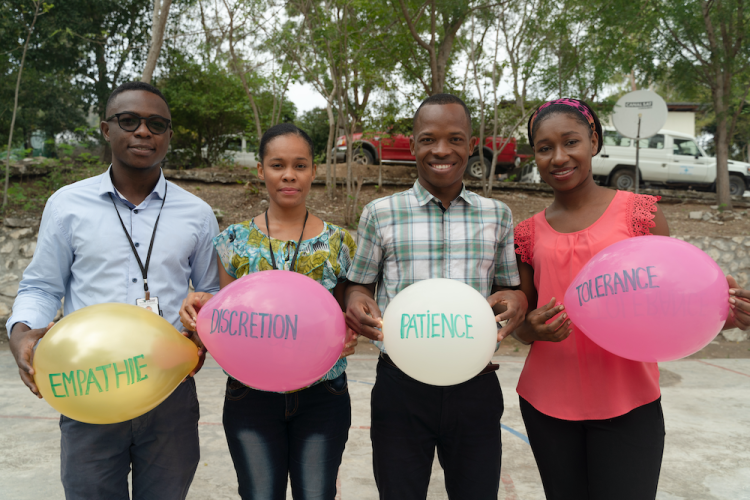“We value making patients feel welcome.”
Your donation will help Nurse Laguerre provide the highest-quality care to every patient in need.


By JWJ Oscar, SBH Social Worker
According to WHO, a person commits suicide every 40 seconds, and a person attempts suicide ever 30 seconds. An estimate 800,000 people commit suicide each year across the world. In Haiti, the suicide rate is 11.7% per 100,000 people in 2016—the third highest rate in North and Central America.
While there are many factors that contribute to suicide, poor mental health and lack of access to mental health care is a leading factor in Haiti. There are only two psychiatric hospitals, 23 psychiatrists, and 124 psychologists to serving more than 11 million people. The cost of private mental health care is prohibitive for most people, the majority of whom live on less than $2 per day. To date, there are no policies or plans to tackle mental health across the country.
While there are many factors that contribute to suicide, poor mental health and lack of access to mental health care is a leading factor in Haiti. There are only two psychiatric hospitals, 23 psychiatrists, and 124 psychologists to serving more than 11 million people.
JWJ Oscar
SBH offers quality care for all of its patients. This includes providing psychosocial support to both patients and hospital staff. Clinicians refer patients with suicidal ideation, or who have already made a suicidal attempt, to the psychosocial team for comprehensive care. Patients receive several psychological and social support sessions, and treatment is tailored to each person’s specific needs.
Psychosocial support at SBH is based on the Person-in-Environment (PIE) model, which makes the link between the individual and their environment or social context. During the initial support sessions, our social workers and psychologist help patients find their voice so they can discuss their problems freely. As staff and patients build a trusting relationship, staff delve deeper into the patient’s life and history. Sessions focus on helping the patient’s behavior and take charge of themselves. For social support, patients can opt for our staff to involve their families or make home visits to provide additional support.
Our psychosocial support team keeps track of suicide cases in the communities we serve. After two recent suicides, the team held a special community radio program to explain how to identify, understand, and prevent risky behavior among friends and loved ones. The team also reminded listeners that anyone suffering from depression can receive help at St. Boniface Hospital.
Recently, the psychosocial support trained hospital staff on suicide prevention. This training took place on September 10, which was the 18th World Suicide Prevention Day. During the training, clinicians learned how to identify suicidal behaviors and risk factors, and they can work with the psychosocial support team to help patients heal. Together, the teams will continue to work to ensure that all of our patients and care staff have access to the best mental healthcare possible at SBH.
If you or someone you know is thinking about suicide, help is available. Call 1-800-273-8255 for free and confidential support, 24/7.
Your donation will help Nurse Laguerre provide the highest-quality care to every patient in need.
